Do you want to learn how to make Bermuda grass thicker? Then you are on the right blog!
This type of grass is one of the most popular species in the country as it is drought tolerant. And that’s just one of the many benefits it offers.
If you want to learn how to take care of your grass, you need to follow our guide. We are about to give you some tips that will help you make your grass greener and thicker.
First, you must understand why Bermuda is different from other types of lawn grasses. It is a warm-season grass that blooms in full sun.
Just like other grass types, Bermuda requires some care if you want it to grow thicker. This type of grass grows quickly, so you must learn how to maintain it correctly.
You can follow many lawn care procedures to make your grass thicker, but we will focus on the top four. Let’s not waste more time; get comfortable and enjoy this post!
Follow These Four Methods and Learn How to Make Bermuda Grass Thicker
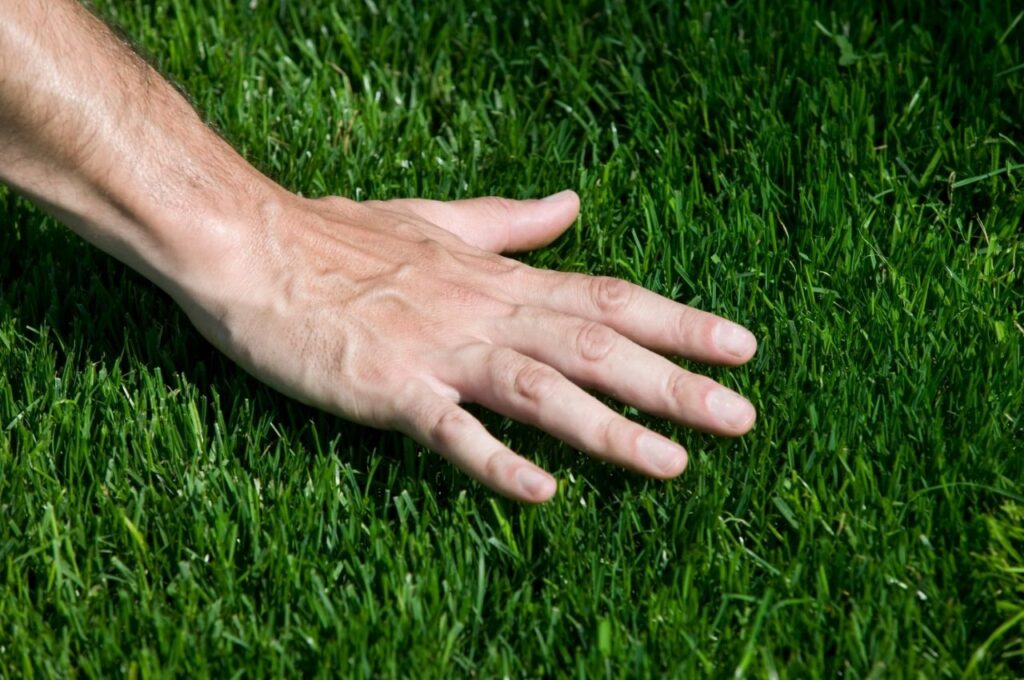
Having a garden or patio with good grass can become a difficult task if you do not choose the right variety and if you do not pay attention to the care it needs. If you have selected Bermuda grass and don’t know how to make it thicker, this guide is ideal.
In other posts, we have mentioned how to give proper maintenance to grass, but today we will focus on how to make it thicker.
Here’s how to make Bermuda grass thicker:
- Water the grass to stimulate its growth.
- Mow the lawn regularly to make it grow evenly.
- Fertilize Bermuda grass to make it grow quickly.
- Aerate the ground to ensure the thickness of the grass.
We all know that thicker grass will enhance the appearance of your garden. But nobody said it is an easy task. There are many things you need to do to maintain your lawn. As we mentioned before, today we will explain which are the four main methods to keep your lawn green and thick. Become a gardener by following these tips!
Water the Grass to Stimulate Its Growth
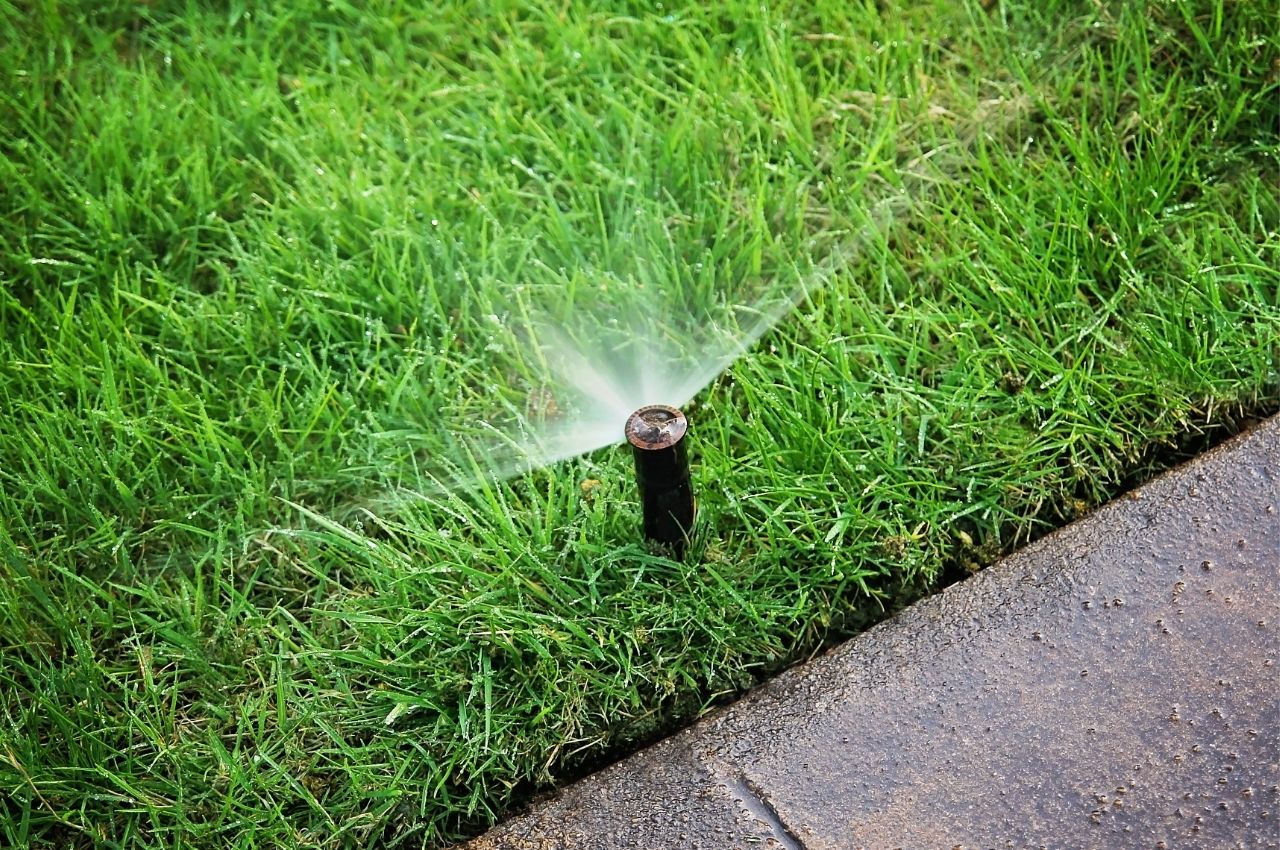
Bermuda lawns are indeed drought-resistant and warm-season grass, but you need to water them to stimulate their growth. Thanks to irrigation, the lawn can recover from the different factors that damage it. We recommend you maintain a weekly watering schedule as it will boost the growth of your grass.
How much should you water?
Before answering that question, we must mention that proper watering is crucial if you want to have the best-looking lawn on the block. Remember you must avoid overwatering your lawn as it will promote the arrival of lawn diseases.
Water your lawn once per day when seedlings are an inch tall. You better water only as fast as the solid absorbs it. Once the grass begins to grow, you can water it twice per week.
As an extra tip, we recommend you get a soil rich in clay minerals as it has better properties and can therefore retain water better. In wet summers and winter, make sure the water drains well to prevent waterlogging.
Mow the Lawn Regularly to Make It Grow Evenly
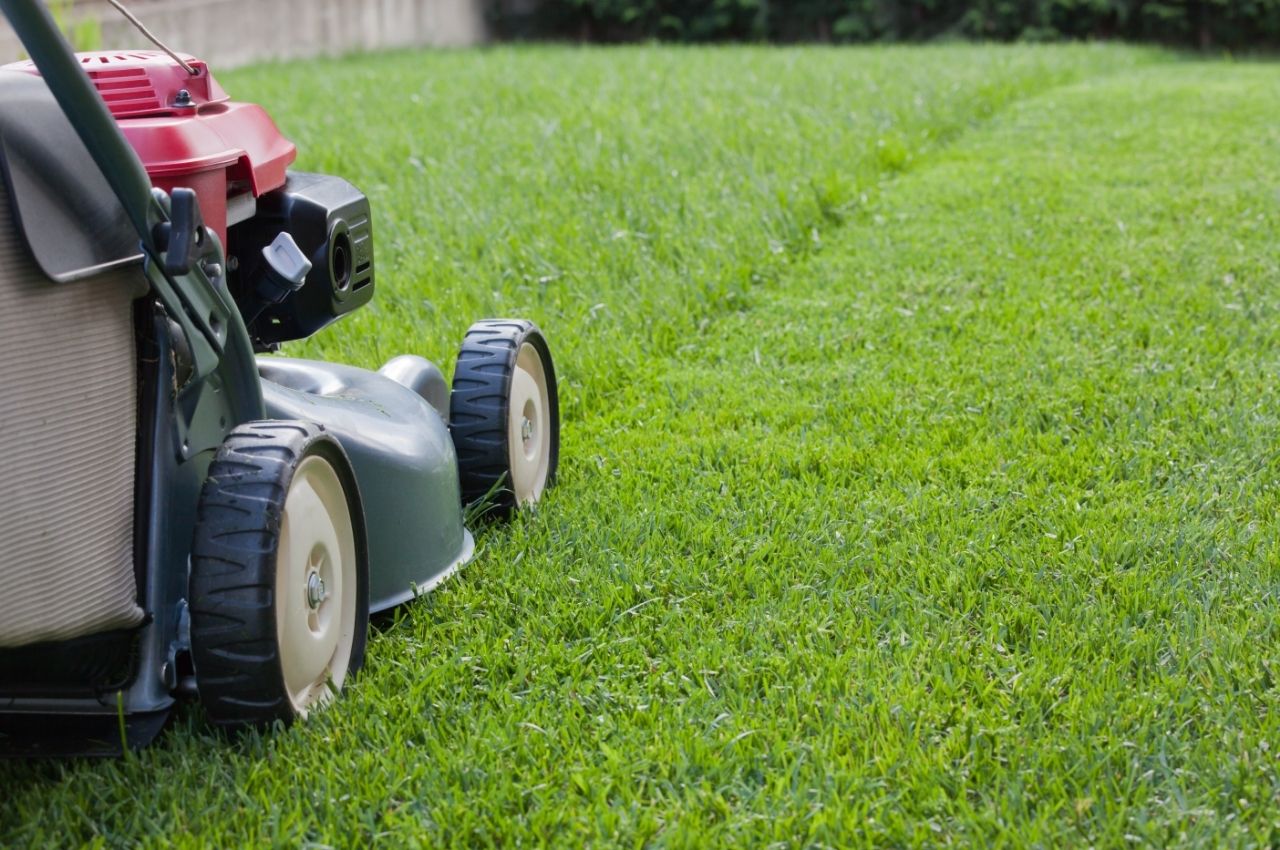
Mowing is undoubtedly the most common task of all those carried out on the lawn. It is essential to ensure that the grass grows thick and green.
Avoid mowing your grass too low. With this, you are reducing the foliar surface and therefore hindering its ability to carry out photosynthesis.
As a general rule, do not mow below 5 cm. It is even advisable to leave it higher in shady areas and periods considered stressful: when the heat is extreme or in the winter months.
Before continuing with the next step, it is essential to mention that you should never cut the grass when it is wet since you will crush it and damage its stems. This lawn mowing process is ideal for small residential gardens, not for big golf courses.
Fertilize Bermuda Grass to Make It Grow Quickly
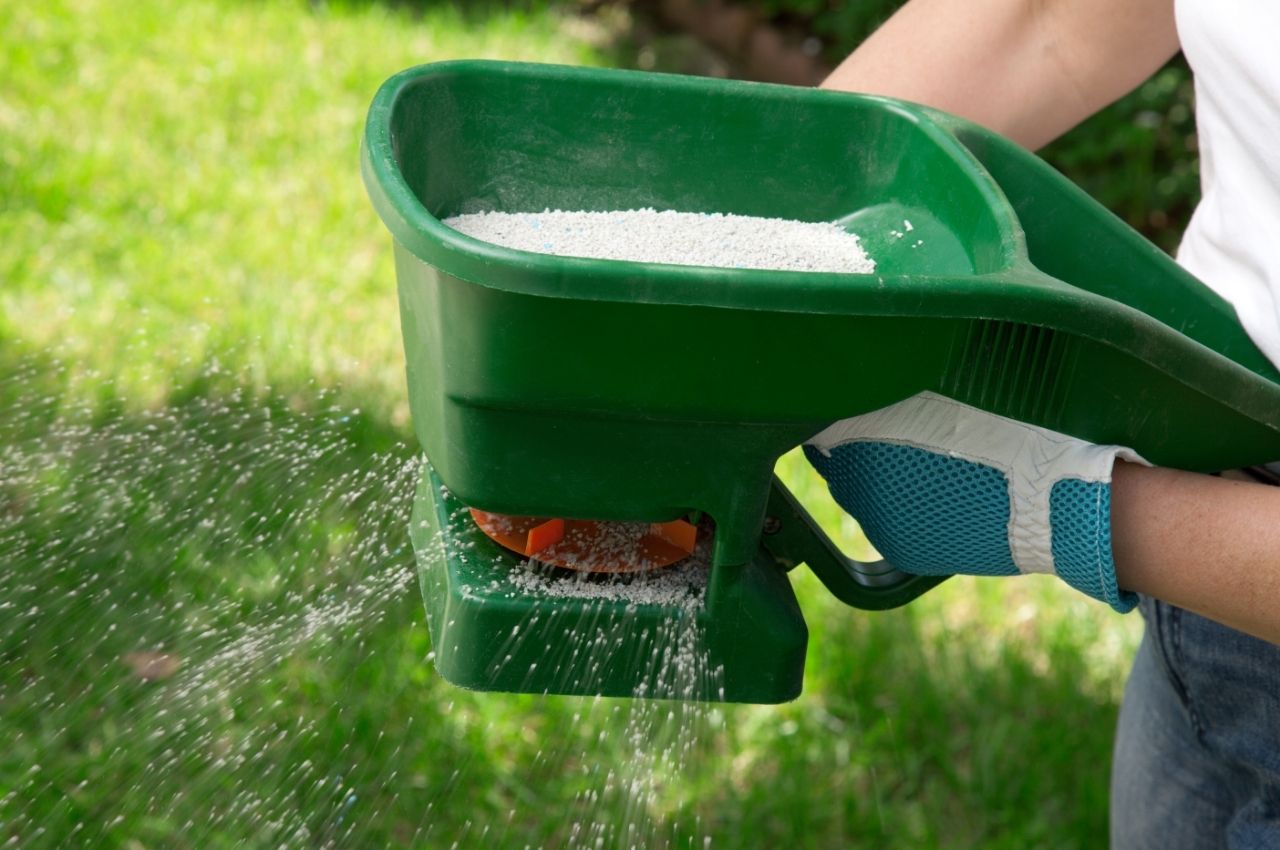
Having the evergreen patio is one of the wishes of any family and, to achieve it, fertilizing the lawn is vital.
Common Bermuda grasses grow faster than other types, but you need to fertilize them to help them grow thicker. You should look for a fertilizer that includes phosphorus, magnesium, potassium, and nitrogen.
Natural grass is a great consumer of energy and very sensitive to a lack of nutrients. Fertilizers are a fundamental part of the development of the lawn.
As in irrigation and mowing, fertilizing the right amount is vital to maintaining a healthy natural lawn. Pay special attention to the doses, fertilization time, and the advice and handling regulations established by the supplier or manufacturer.
Kill the weeds on your grass by applying the right lawn fertilizer. Fertilizing a lawn can be difficult if you are inexperienced, so we recommend seeking professional help.
Aerate the Ground to Ensure the Thickness of the Grass
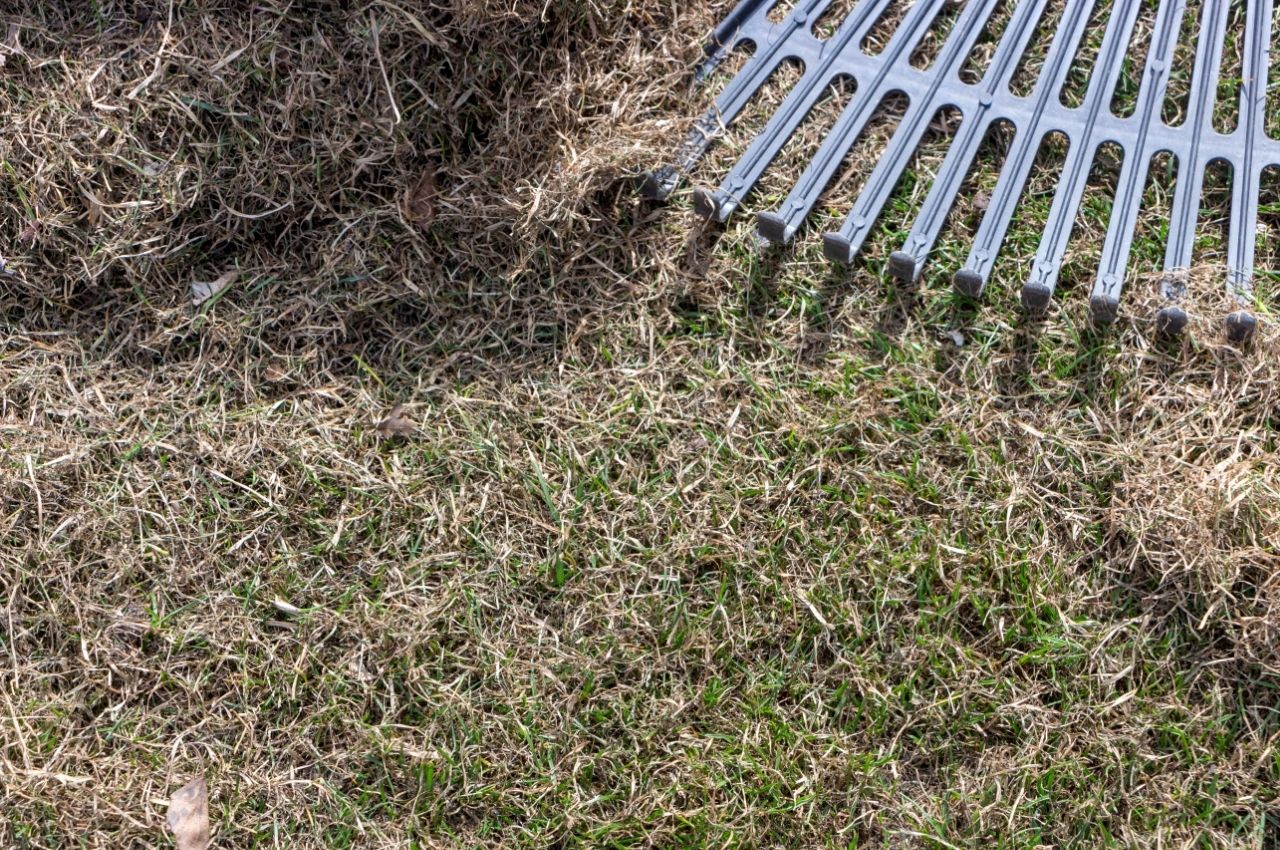
It is necessary to aerate it twice a year to keep it in perfect condition. This technique consists of making holes in the ground, approximately 10 centimeters deep, to allow it to oxygenate.
Aeration helps the roots to breathe and improves the assimilation of the compost. It is essential to do it on a lawn damaged by footprints. With this, you will avoid the hardening of the earth, the thinness, or the scarcity of the leaves and prevent dehydration, diseases, or simple daily wear and tear.
You also have to be careful in areas or in times of rain. The abundance of water can damage the soil and grass, causing puddles that take a long time to dry. If this is prevalent in your garden, you should aerate every year.
Now that you have read our guide, you already know how to make Bermuda grass thicker. Remember that you must water and mow the lawn, and then fertilize and aerate it.
Saltos Landscaping LLC understands that taking care of your lawn is a difficult task. That is why we want to help you. Call us today!



